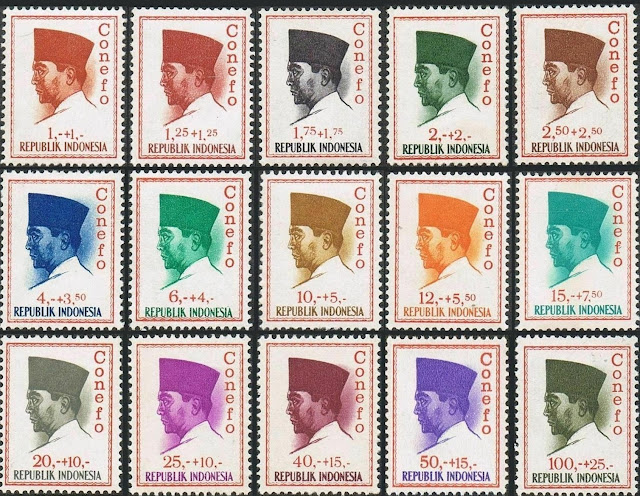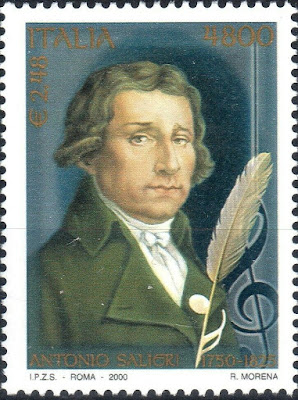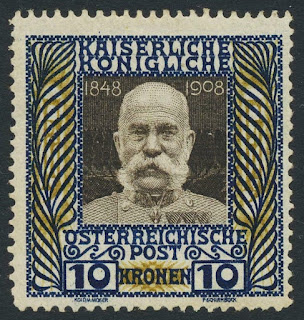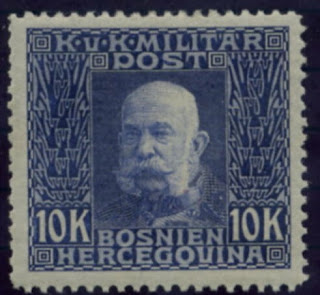Here are some events that happened on August 18th. It could be an event or a person that died or was born on that day
1450 Born: Marko Marulić, Croatian poet and author (d. 1524)
Marko Marulić Splićanin (18 August 1450 – 5 January 1524), was a Croatian poet and Renaissance humanist. He coined the term "psychology".
The Latin word psychologia was first used by the Croatian humanist and Latinist Marko Marulić in his book, Psichiologia de ratione animae humanae in the late 15th century or early 16th century. The earliest known reference to the word psychology in English was by Steven Blankaart in 1694 in The Physical Dictionary which refers to "Anatomy, which treats the Body, and Psychology, which treats of the Soul."
Very little is actually known about his life, and the few facts that have survived to this day are fairly unreliable. It is certain that he attended a school run by a humanist scholar Tideo Acciarini in his hometown. Having completed it, he is then speculated to have graduated law at the Padua University, after which he spent much of his life in his home town. Occasionally he visited Venice (to trade) and Rome (to celebrate the year 1500).
He lived for about two years in Nečujam on the island of Šolta. In Split, Marulić practised law, serving as a judge, examinator of notarial entries and executor of wills. Owing to his work, he became the most distinguished person of the humanist circle in Split.
He is regarded as the Croatian national poet and has been called the "crown of the Croatian medieval age" and the "father of the Croatian Renaissance".
1750 Born: Antonio Salieri, Italian composer and conductor (d. 1825)
Antonio Salieri (18 August 1750 – 7 May 1825) was an Italian classical composer, conductor, and teacher. He was born in Legnago, south of Verona, in the Republic of Venice, and spent his adult life and career as a subject of the Habsburg Monarchy.
Salieri was a pivotal figure in the development of late 18th-century opera. As a student of Florian Leopold Gassmann, and a protégé of Christoph Willibald Gluck, Salieri was a cosmopolitan composer who wrote operas in three languages. Salieri helped to develop and shape many of the features of operatic compositional vocabulary, and his music was a powerful influence on contemporary composers.
Appointed the director of the Italian opera by the Habsburg court, a post he held from 1774 until 1792, Salieri dominated Italian-language opera in Vienna. During his career he also spent time writing works for opera houses in Paris, Rome, and Venice, and his dramatic works were widely performed throughout Europe during his lifetime. As the Austrian imperial Kapellmeister from 1788 to 1824, he was responsible for music at the court chapel and attached school. Even as his works dropped from performance, and he wrote no new operas after 1804, he still remained one of the most important and sought-after teachers of his generation, and his influence was felt in every aspect of Vienna's musical life. Franz Liszt, Franz Schubert, Ludwig van Beethoven, Johann Nepomuk Hummel and Franz Xaver Wolfgang Mozart were among the most famous of his pupils.
Salieri's music slowly disappeared from the repertoire between 1800 and 1868 and was rarely heard after that period until the revival of his fame in the late 20th century. This revival was due to the dramatic and highly fictionalized depiction of Salieri in Peter Shaffer's play Amadeus (1979) and its 1984 film version. The death of Wolfgang Amadeus Mozart in 1791 at the age of 35 was followed by rumors that he and Salieri had been bitter rivals, and that Salieri had poisoned the younger composer, yet it is likely that they were, at least, mutually respectful peers.
Italian stamp depicting Salieri
1830 Born: Franz Joseph I of Austria (d. 1916)
Franz Joseph I or Francis Joseph I (German: Franz Joseph I.; 18 August 1830 – 21 November 1916) was Emperor of Austria, King of Hungary, King of Bohemia, and monarch of many other states of the Austro-Hungarian Empire, from 2 December 1848 to his death. From 1 May 1850 to 24 August 1866 he was also President of the German Confederation. He was the longest-reigning Emperor of Austria and King of Hungary, as well as the third-longest-reigning monarch of any country in European history, after Louis XIV of France and Johann II of Liechtenstein.
In December 1848, Emperor Ferdinand abdicated the throne at Olomouc, as part of Minister President Felix zu Schwarzenberg's plan to end the Revolutions of 1848 in Hungary. This allowed Ferdinand's nephew Franz Joseph to accede to the throne. Largely considered to be a reactionary, Franz Joseph spent his early reign resisting constitutionalism in his domains. The Austrian Empire was forced to cede its influence over Tuscany and most of its claim to Lombardy–Venetia to the Kingdom of Piedmont-Sardinia, following the Second Italian War of Independence in 1859 and the Third Italian War of Independence in 1866. Although Franz Joseph ceded no territory to the Kingdom of Prussia after the Austrian defeat in the Austro-Prussian War, the Peace of Prague (23 August 1866) settled the German Question in favour of Prussia, which prevented the Unification of Germany from occurring under the House of Habsburg.
Franz Joseph was troubled by nationalism during his entire reign. He concluded the Austro-Hungarian Compromise of 1867, which granted greater autonomy to Hungary and transformed the Austrian Empire into the Dual Monarchy of Austria-Hungary. He ruled peacefully for the next 45 years, but personally suffered the tragedies of the execution of his brother, the Emperor Maximilian of Mexico in 1867, the suicide of his only son and heir-apparent, Crown Prince Rudolf, in 1889, the assassination of his wife, Empress Elisabeth, in 1898, and the assassination of his nephew and heir-presumptive, the Archduke Franz Ferdinand, in 1914.
After the Austro-Prussian War, Austria-Hungary turned its attention to the Balkans, which was a hotspot of international tension because of conflicting interests with the Russian Empire. The Bosnian Crisis was a result of Franz Joseph's annexation of Bosnia and Herzegovina in 1908, which had been occupied by his troops since the Congress of Berlin (1878).
On 28 June 1914, the assassination of his nephew and heir-presumptive, Archduke Franz Ferdinand, in Sarajevo resulted in Austria-Hungary's declaration of war against the Kingdom of Serbia, which was an ally of the Russian Empire. That activated a system of alliances which resulted in World War I.
Franz Joseph died on 21 November 1916, after ruling his domains for almost 68 years as one of the longest-reigning monarchs in modern history. He was succeeded by his grandnephew Charles.
Stamps from Austria, Hungary and Bosnia depicting Franz Joseph I
1945 – Sukarno takes office as the first president of Indonesia, following the country's declaration of independence the previous day.
Sukarno (born Kusno Sosrodihardjo; 6 June 1901 – 21 June 1970) was an Indonesian politician who was the first president of Indonesia, serving from 1945 to 1967.
Sukarno was the leader of the Indonesian struggle for independence from the Dutch Empire. He was a prominent leader of Indonesia's nationalist movement during the Dutch colonial period and spent over a decade under Dutch detention until released by the invading Japanese forces in World War II. Sukarno and his fellow nationalists collaborated to garner support for the Japanese war effort from the population, in exchange for Japanese aid in spreading nationalist ideas. Upon Japanese surrender, Sukarno and Mohammad Hatta declared Indonesian independence on 17 August 1945, and Sukarno was appointed as its president. He led Indonesians in resisting Dutch re-colonisation efforts via diplomatic and military means until the Dutch recognition of Indonesian independence in 1949. Author Pramoedya Ananta Toer once wrote, "Sukarno was the only Asian leader of the modern era able to unify people of such differing ethnic, cultural and religious backgrounds without shedding a drop of blood."
After a chaotic period of parliamentary democracy, Sukarno established an autocratic system called "Guided Democracy" in 1959 that successfully ended the instability and rebellions which were threatening the survival of the diverse and fractious country. The early 1960s saw Sukarno veering Indonesia to the left by providing support and protection to the Communist Party of Indonesia (PKI) to the irritation of the military and Islamists. He also embarked on a series of aggressive foreign policies under the rubric of anti-imperialism, with aid from the Soviet Union and China. The failure of the 30 September Movement in 1965 led to the destruction of the PKI with executions of its members and sympathisers in several massacres, with an estimated 500,000 to 1,000,000 dead. He was replaced in 1967 by one of his generals, Suharto, and remained under house arrest until his death in 1970.
Indonesian stamps depicting Sukarno










